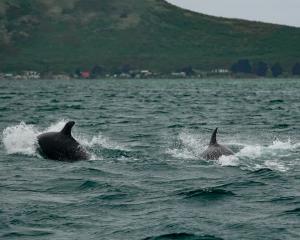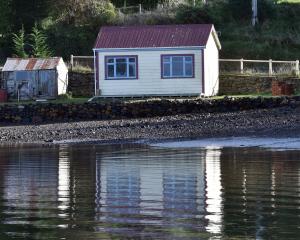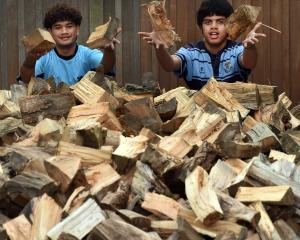The fourth hearing of the inquiry into the state of manufacturing, a Labour, Greens, NZ First and Mana Party initiative, was held at the Otago Museum yesterday.
Labour MPs David Clark, Clare Curran, Dr Megan Woods and David Parker, New Zealand First leader Winston Peters and Green Party co-leader Dr Russel Norman and MP Julie-Anne Genter were the parliamentary representatives and speakers included union leaders and redundant manufacturing staff.
Former Hillside Engineering staff member Les Ingram (59) said many redundant Hillside Engineering staff had struggled to find work, and he was thankful for a week's work driving a van.
He wanted to stay in Dunedin but if the manufacturing industry continued ''down this track'', he would move to Australia, he said.
Mr Clark said more than 1000 people left Dunedin for Australia last year.
The imported Chinese train carriages were low in price but high in ''life costs'', where young engineers had fewer training opportunities.
The train carriages being imported had major problems with brakes and welds, he said.
Mr Clark asked Mr Ingram if the lives of New Zealanders were at risk from ''shoddy'' welds.
The Chinese ''rice bubble'' welds were ''like having one wheel nut holding your wheel on'', Mr Ingram said.
Mr Peters said the carriages were unpleasant for commuters.
''A lot of this Chinese stuff is junk and is not ventilated.''
Rail and Maritime Transport Union organiser John Kerr said Hillside was closed because KiwiRail declined work, such as manufacturing affordable housing from shipping containers.
To appreciate the inhumanity of redundancy, you had to see the hurt and despair in the workers' eyes, he said.
''Someone, somewhere, has decided he is unwanted, unneeded and is to be thrown on the industrial scrapheap.''
Former Summit Wool Spinners staff member Sharon Solomon said the sale of the carpet yarn exporters by its Japanese owner, Sumitomo Corporation, would put 160 people out of work and would mean $11 million less in the local economy.
Oamaru residents would need to move because the meat works were ''on the decline'' and there were fewer opportunities in the dairy industry because of competition from Filipino staff, she said.
NZ Aluminium Smelters union representative Trevor Hobbs said the Tiwai Point aluminium smelter had a 30% increase in its power costs in January.
''There's a real danger of Rio Tinto closing the smelter if they can't get back into a position of making money.''
About 750 smelter staff earned an average income of $100,000 but a Venture Southland report revealed 3200 people relied on the smelter for income.
Business consultant Sandy Price said the importation of manufactured goods left a large environmental footprint and was unsustainable.
Mr Peters said importing goods, such as the RSA Anzac Day poppies from China, would not be tolerated in other countries.
''The reaction would be so dynamic, you would not contemplate it.''












